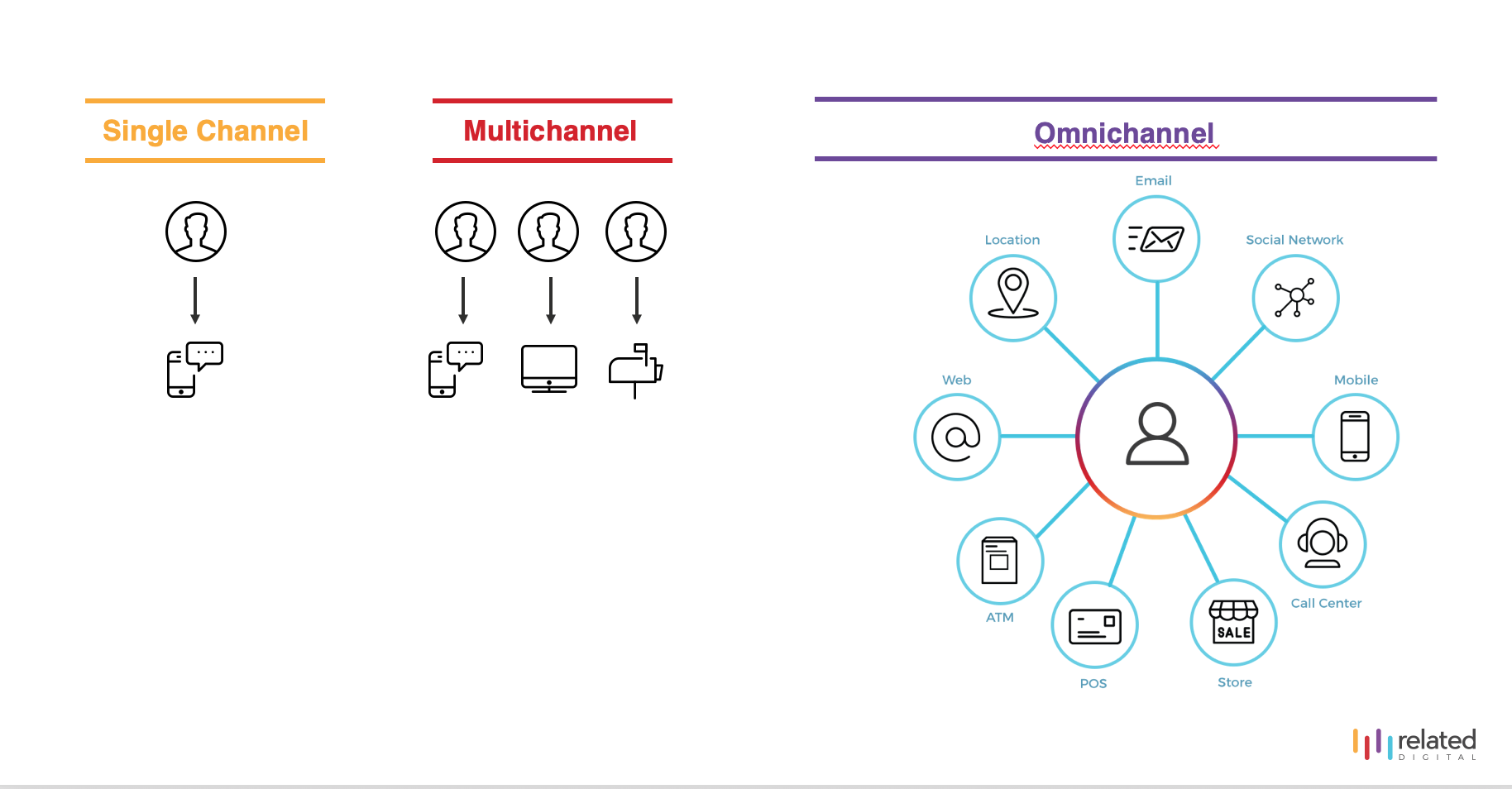What is Omnichannel Marketing?

The way that consumers make purchases and interact with businesses is changing. People want a more personalized approach, communicating with brands on their own terms, and from the device that they choose. The effectiveness of batch email campaigns, print media, and traditional marketing is declining. An omnichannel, multi-device marketing approach is required to succeed in this new digital environment.
A Customer-Centric Approach
The term omnichannel marketing is used to describe this new approach. To meet the demands of the modern consumer, companies need to provide a consistent and smooth customer experience across every channel and device. The modern consumer can engage with a company through social media, an online website, over the phone, or visiting a physical store. They want to be able to interact with businesses through whichever device or platform they choose, and they want a consistent and seamless customer experience.
How Does Omnichannel Marketing Differ From Multichannel Marketing?
Multichannel is a functional approach – enabling customers to complete purchases on each channel. Omnichannel is a customer-centric approach that looks at the customer experience as a whole, to provide an integrated and consistent experience across all channels. Omnichannel requires a deep understanding of your customers, anticipating and allowing for a customer to start their journey on one channel and experience a smooth and fluid movement to another as they progress through the buyer’s journey. In plain terms, omnichannel is the evolution of multichannel marketing.

Why Omnichannel Marketing?
The most significant reason for embracing omnichannel marketing? You’re giving people what they want. The modern consumer uses their wallet to vote for omnichannel marketing as they switch between online and off-line channels when they make a purchase – 73% of customers have stated that they are more likely to visit a physical store if the online inventory is accurate. This is even more important when you consider that 70% consumers still prefer to buy from a brick and mortar store than an online-only store.
- A 2015 report by IDC revealed that customers who make both online and in-store purchases from a business have a 30% greater lifetime value than those that purchase through only one channel.
- Companies with strong omnichannel customer engagement report a 9.5% year-over-year boost in annual revenue, in comparison to 3.4% for companies with poor omnichannel engagement.
The modern consumer has been empowered by the digital age. People want to interact and purchase products from businesses the way they want. Omni-channel marketing is the reaction and evolution of business to meet the new demands of the consumer.
How Does it Work?
Every business owner knows the importance of making the purchasing process and the buyer’s journey as smooth and straightforward as possible. According to a recent study, 62% of consumers are even willing to spend more for a more straightforward buying experience. Omni-channel marketing ensures a simplified and direct buyer’s journey for the consumer.
For example, let’s say that you are waiting in a queue at a coffee shop on your lunch break. You scroll through your Facebook feed and see a promotion from a local home electronics store. The Ad is promoting a 50% sale on selected products. You click on a link from the Ad and land directly on a page that shows all the items that are included in the 50% off sale. You choose to purchase a new blender and proceed to the online checkout, but instead of delivery, you decide to pick up the blender in-store on your way home from work. You later visit the store and go straight to the kiosk with the in-store pick-up sign. You enter your details, and a member of staff promptly brings your new blender.
All the channels encountered during the purchase (social, online, in-store) provided a smooth and uninterrupted journey for the customer to complete a purchase. This shows an omnichannel marketing approach working in a basic form.
Benefits of Omnichannel Marketing
Integrated Analytics
An omnichannel approach streamlines your sales channels and data streams. While the older multichannel marketing approach segregated data to see how each channel was performing, an omnichannel approach understands the modern consumer, taking a view of marketing performance as a whole.
This allows for more strategic insight and better collaboration in your marketing efforts, enabling companies to better track customer behavior and highlight which channels are seeing the most engagement before a purchase.
With this data, companies can be more intelligent with their marketing spend, increasing the efficiency of their marketing campaigns.
Streamlined Logistics and Customer Service
With a more in-depth insight into their customer behavior, companies can better identify the needs of their customers and act accordingly to meet them. For example, let’s say a company is seeing good engagement and conversions from social media Ads targeted to a specific region. An omnichannel approach would allow the company to track the performance of the Ads and proactively increase the inventory of physical stores in the area, improving the customer experience for buyers that engage with the online Ad and choose to pick up their purchase in-store.
Improved Customer Retention
Repeat customers are the most profitable. Omni-channel marketing helps to provide the consistency and familiarity that is so important in customer retention. Businesses with an omnichannel strategy are 91% more likely to retain customers year-over-year.
A unified omnichannel approach helps to manage relationships with customers across all channels and points of contact, improving customer service, and increasing customer satisfaction.
Conclusion
The most important metrics for a business are sales, revenue, and profit. People like things to be easy, and an omnichannel marketing approach provides a smooth and seamless experience for customers to make a purchase.
The way that people interact with companies and make a purchase has changed. Omni-channel marketing is a natural evolution in approach to meet the demands of the modern consumer.


